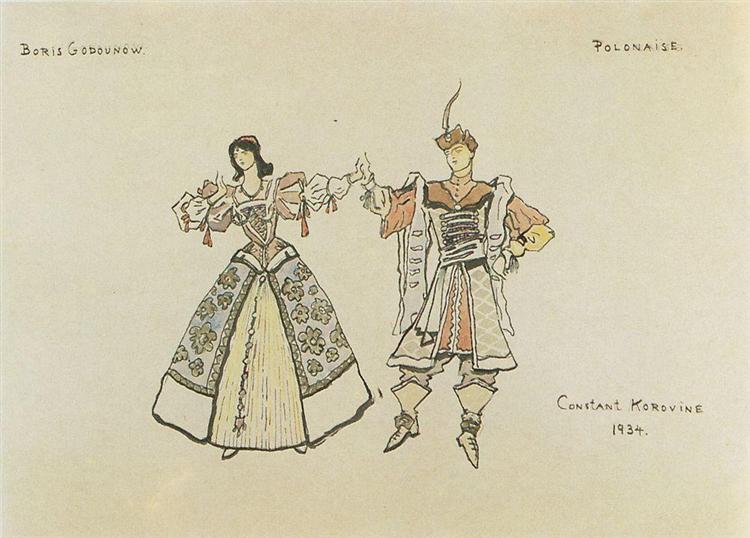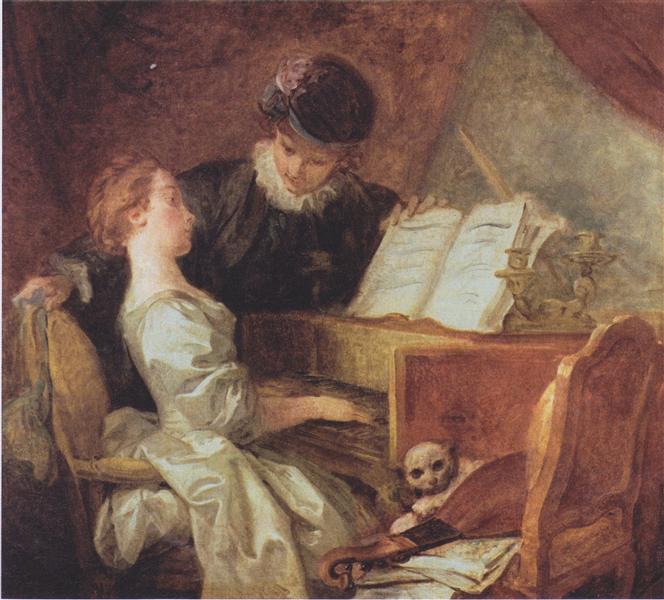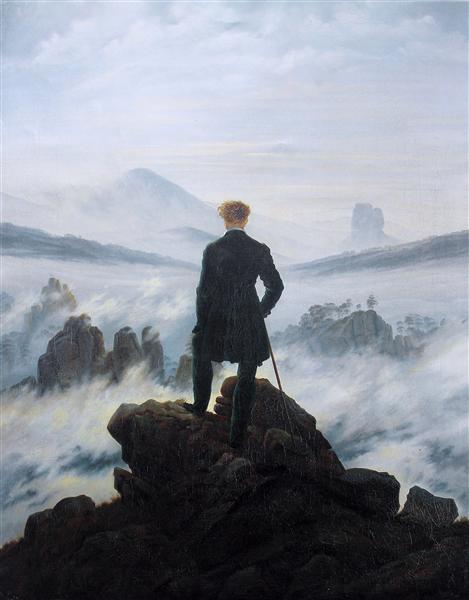Just another WordPress.com weblog
Month: February, 2023

________
cause the pickings are slim among the
shared musical formats between Mozart
and Chopin, Mozart, for instance,
composed eighteen piano sonatas to
Chopin’s mere three, Chopin’s First
even having been more or less
disregarded since for being promising
maybe, but not at all inspired, where
Mozart meanwhile also wrote 27 piano
concertos to Chopin’s only two, though
both, his, entirely mighty
Chopin, however, pretty well establishes
the nocturne, the scherzo, the prelude,
the étude, the polonaise, the mazurka
as musical forms, while Mozart never
establishes a thing, apart from his own
supreme talent
but here are a couple of fantasias that
they both share, Mozart’s Fantasia
fantaisie to the beat of a polonaise,
a dance form of his native Poland,
admittedly show up only near the
end of the piece, otherwise he
sounds a lot like, I’ll admit, Chopin
trills, notably, up against arpeggios
R ! chard

_______________
having spent too much time, perhaps,
giving context, from Classicism to
brought on by the worlds that open up
to me when l Iisten to this kind of music,
rather than imparting specific information
about how to sharpen one’s aesthetic
sensitivity, about listening rather than
just hearing, this time I’ll get technical,
if you’ll allow, with the help of the same
Chopin’s 3rd, how are they different,
how are they similar, how do they
compare
first, similarities, they are both sonatas,
pieces of music consisting of more than
one segment of music, traditionally, three
four
Chopin doesn’t diverge from the trinity
of imperatives that Mozart set up
tonality, and repetition, the pace of
the music remains constant within
the parameters established by the
directions at the top of the page,
an adagio doesn’t change its beat
throughout the movement for either,
nor would an andante, a presto, an
allegretto
this will change
neither does any element of the
music produce discords, tonality
remains mellifluous throughout
for both, lilting, harmonious ever,
even often, in either, enchanting
this will also change
and everywhere, a flight of musical
invention will eventually return to
its original source, and you find
that you’ve come back from a sonic
adventure to home base, where the
whole thing starts all over again,
repetition, a condition considered
essential, until relatively recently,
to the definition of music
this will also change
but how are they different
listen to the decoration, Mozart
applies trills to individual notes,
a flutter of adjacent tonalities
to set the central one off, like
glitter, the twitter of birds
punctuating, here and there,
the stillness of a forest
Chopin colours his entire
keyboard with arpeggios rather,
runs up and down the scales,
turning melodies into not only
delights, but stepping stones to
entirely other dimensions,
extrapolations from the original
tune, seemingly spontaneous
evolutions, the first burgeonings,
incidentally, of jazz, before returning,
notably, to his original air, much as
Mozart does, to his core statement,
fulfilling the Classical requirement
of repetition
how to tell your Chopin from your
Mozart, how to sharpen your
aesthetic sensibility, listen, listen
R ! chard

_____________
by now, if you’ve been listening,
you’ll probably easily tell your
Chopin from your Mozart, even
without looking
if not, the one who isn’t Mozart
is Chopin, the one who isn’t
Chopin is Mozart, cause you’re
likely to recognize the one if not
the other
1788, which even Mozart
deemed “for beginners”, but
its very elementary qualities
suit, here, my purposes
some sixty years later, the
Mozart is Classical, the foundation
of the shape and sound of music
in the West, think of Oriental music,
Chinese, for instance, opera, as an
alternative inspirational direction
he sets, along with Haydn, incidentally,
the parameters of Western music, I
call it its grammar, tempo, tonality,
and repetition, its hallmarks, its sine
qua non, as we say in Latin, its trinity
of imperatives, its without which there
would be no Western music as we
know it
Romanticism, after two revolutions,
the French and the American, comes
along to turn all of that into literature,
prompted by the spirit of democracy,
the first expressions of it since Caesar,
Ancient Rome, where earlier,
everywhere, kings had ruled, and by
extension, even more autocratically,
the Church, for monarchs had
received, morally, and consequently
politically, from it, their mandates
from God
one man, one vote, even theoretically,
upended that entire metaphysical
everyone had a voice, everyone had
a story, the birth of the individual,
and of, by extension, human rights,
for better or for worse, see above
therefore Chopin
listen, Chopin is the new Jesus,
prophet, but for a new age
stay tuned
R ! chard

___________
where do you start with Chopin, he is
in our Western cultural bloodstream,
as identifiable in music as, say, van
Gogh is in painting, you don’t need
to be interested in any kind of art to
have not been given even only a
whiff of these iconic artists
nearly anything I might present here
of Chopin you’ve probably already
heard somewhere before, if only in
bits
of van Gogh, well, he goes back in
the public imagination to at least
doesn’t know about him, when I
heard it playing in Amsterdam at
the museum, with the first piece I
the first wall, insisting on van Gogh’s
vision, his prophecy, his profound
compassion, I cried, I understood
Chopin exerts a different kind of,
however equally potent, magic
Mozart might sound like Haydn,
Beethoven might sound like
Schubert, all of the Impressionists
sound like all of the Impressionists,
be they Ravel, Debussy, Satie, or
Saint-Saëns, to the untrained ear
but no one sounds like Chopin,
he’s, culturally, a North Star
in English, a study, a finger exercise,
an iconic, here, prestidigitation
to get your categories going
consider its construction, having
some information already about
fantasias, a work of the imagination,
open to any experimentation within
the confines of one movement, with
an impromptu, something purported
to have been created on the spot,
also in one movement
the answer requires you to sharpen
your aesthetic pencil, always a
delight – an impromptu, a
spontaneous invention, a fantaisie,
a work of the imagination, how do
they differ, which part is a fantaisie,
which an impromptu, how do they
nevertheless coalesce
this exercise is the first step in
listening
enjoy
R ! chard

________
having brought up the idea of
the fantasia, a musical form that
lasted about 150 years, with hats
off nevertheless to the later Disney
classic, Fantasia, a tribute, which,
full of Classical music references,
followed in its spiritual mode, and,
after introducing Chopin, perhaps
the very representation of the
intuit, in our very bones, I thought
specialty, where he created,
incontrovertibly, utter magic
who hears of the waltz anymore, an
antiquated curiosity, though even in
our not so distant blood we feel the
reverberations of its memory, the
throb of its still vibrant cultural
intensity, relevance, rhythm
tangos, incidentally followed, and
other intimate interactions, which
had been earlier frowned upon
the difference was the physical
contact, young nobles left their
aristocratic salons, however
discreetly, to frequent the
more liberal, if disreputable,
establishments – like to
– where they could explore the
new, licentious venues, as
young nobles, ever, would, for
the lure of intimate connection
with the partner
couples touched, breast upon
breast, composers followed
Chopin was metaphysical, you
didn’t dance to his waltzes, you
experienced them, here’s his
here’s his equally delightful
got all of Vienna to dance his,
and everywhere else after, until
the waltz fell out of favour
somewhere in the 1950s, leaving
only its memories behind, here’s
you’d been there
idealized, in the other, it’s the
waltz in action, listen, you can
tell the difference, you won’t
want to dance, for instance, to
Chopin, though you might give
it an ineffectual try, to Strauss,
you’ll careen
R ! chard




